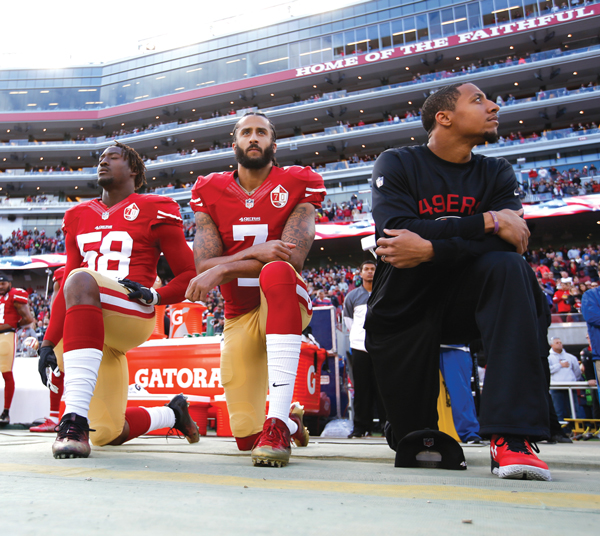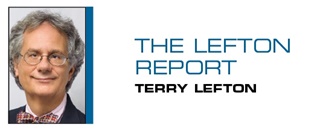S
wimming daily in the marketing morass, we’re unfortunately inured to people talking at length about subjects in which their knowledge deficit is somewhere between pronounced and ignorant.
The curious case of Colin Kaepernick is one such instance. Surely, it stretches credibility to accept that any quarterback could go from being within five yards of winning the Super Bowl in 2013, to being a starting QB last year and then adjudged as being incapable of making an NFL roster as a third-stringer.
Still, we are leaving those issues for others.
Having been unable to find NFL employment, Kaepernick’s court of last resort is his collusion grievance against the NFL, which, per the collective-bargaining agreement, will be decided by an independent arbitrator: University of Pennsylvania Law School professor Stephen Burbank.
Establishing proof of collusion and the standards thereof is a central issue here that isn’t present in the much-discussed Kaepernick case. Perhaps that’s because he initiated the national anthem protests that are a more central topic of debate surrounding America’s most popular sports property. Nonetheless, legal standards for proof of collusion will be paramount. So what are they?
 |
An independent arbitrator will hear Colin Kaepernick’s case.
GETTY IMAGES |
While rules of an arbitration hearing vary from those within a courtroom, legal experts told us that since physical evidence of collusion is almost never found, circumstantial evidence is normally what wins the case if it is winnable.
So, when it comes to the customary burden of proof, “the standard gets down to ‘more likely than not,’” said Matt Mitten, Marquette University Law School professor, who is executive director of the National Sports Law Institute and past president of the Sports Lawyers Association.
As in any civil proceeding, the plaintiff (Kaepernick) has the burden of proof; more than 50 percent of the evidence must support his contention of collusion.
Added Mitten: “My background in antitrust tells me you can prove collusion as an express or inferred agreement and showing that the clubs were acting contrary to their individual interest. But the mere fact that no club has offered him a contract likely isn’t sufficient to establish that there was a [leaguewide] boycott. Assuming collusion is proved, the remedy is likely money damages. The arbitrator really can’t issue an order that one club has to sign him.”
Despite Kaepernick’s attorney’s claims that he will depose NFL owners and try to access their electronic communications, no one expects a “smoking gun” document or email outlining Kaepernick’s NFL ostracism.
“Antitrust or collusion requires proof of conspiracy, but rarely if ever is there a document proving that,” said attorney Alan Rothenberg, chairman of Premier Partnerships and the former chairman and CEO of the 1994 FIFA World Cup, recalling a case involving petroleum companies in which collusion was established simply by establishing that five oil company presidents went to dinner the night before they all raised prices by the same amount.
Relative to Kaepernick? “I’d have to know more about how active he has been in reaching out to NFL teams,” Rothenberg said. “If he or his agent contacted every team and they said ‘no’ or didn’t respond, that’s entirely more convincing than sitting back and waiting for calls.”
Attorney Jeremy Evans of the firm California Sports Lawyer, Los Angeles, notes that collusion by definition means two or more clubs (or a single club and the league) conspiring. Activity by a single team is immaterial.
An interesting sidelight here: By CBA rule, if it is established that 14 or more clubs colluded against Kaepernick, the NFL Players Association has the right to blow up the entire CBA.
“The results of Kaepernick winning could be substantial,” Evans said, “but by no means will it be easy to establish.”
Terry Lefton can be reached at tlefton@sportsbusinessjournal.com.





